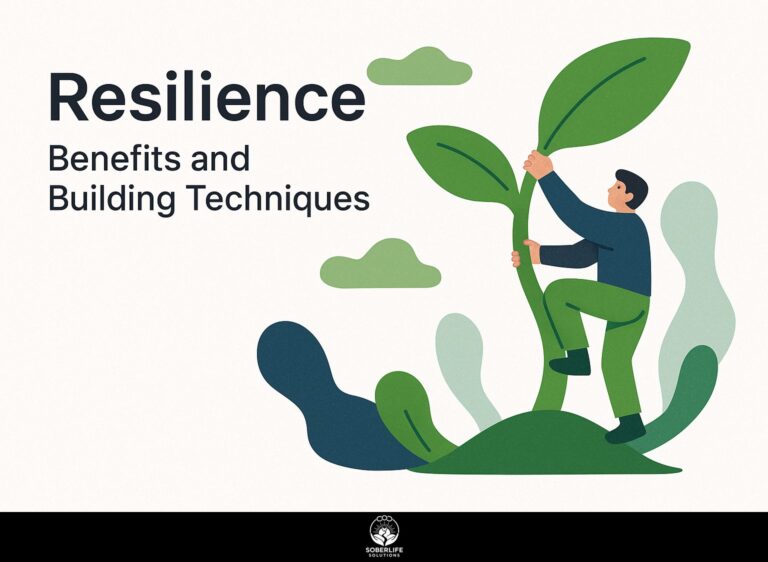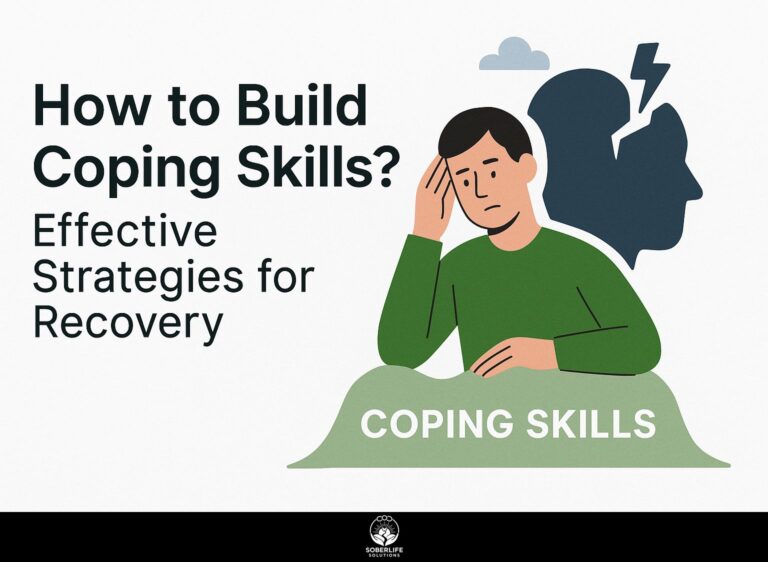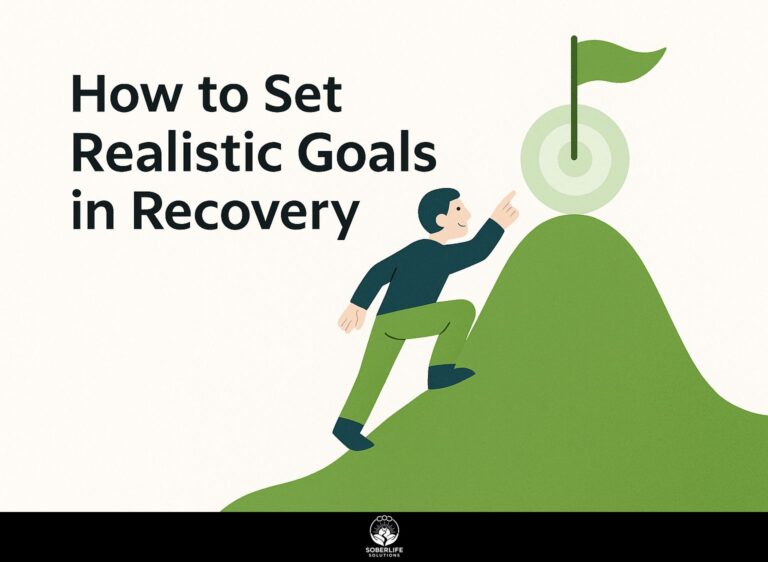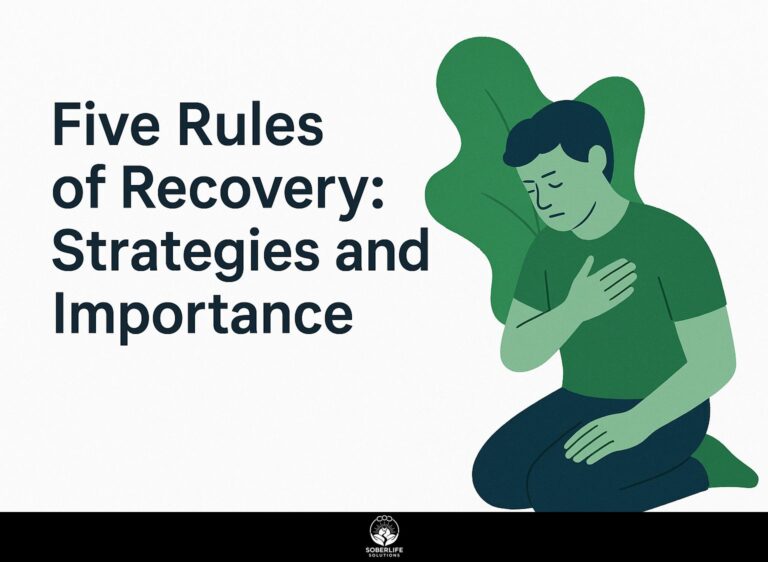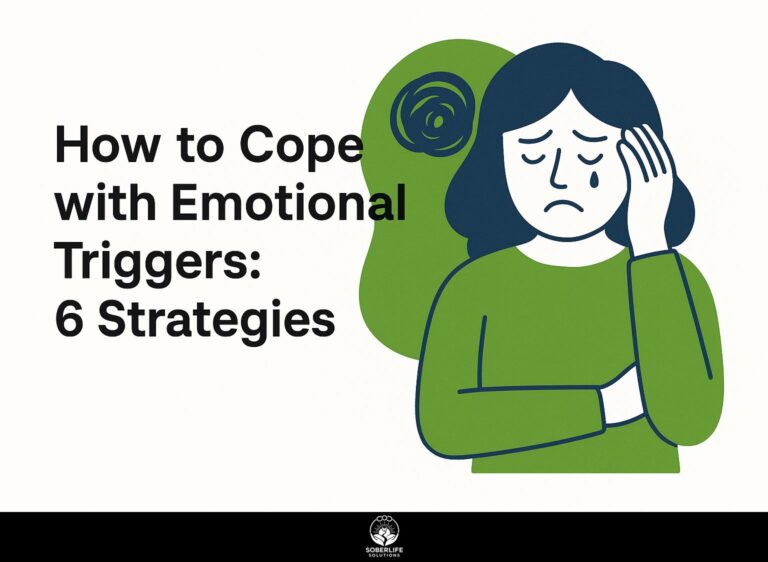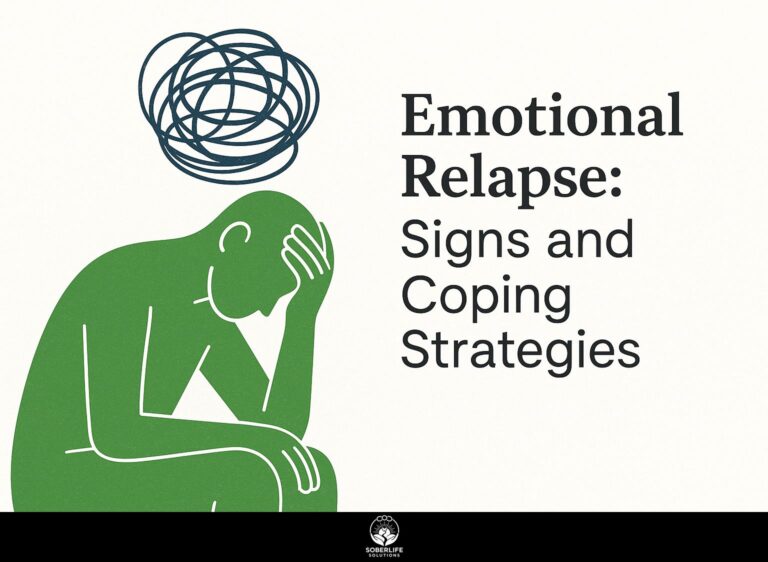How to Communicate Feelings for Recovery
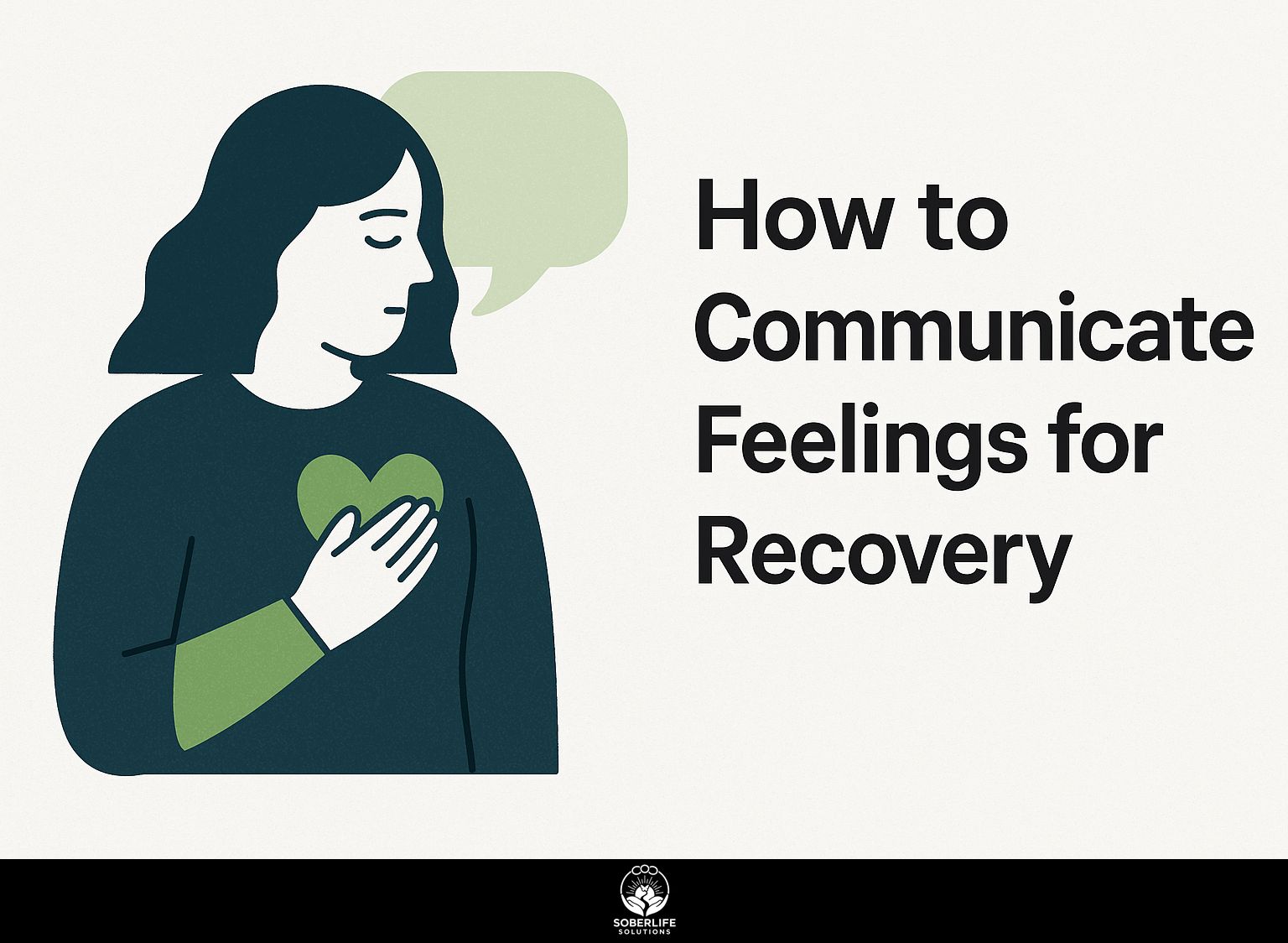
Direct communication is essential for individuals in addiction recovery. By sharing negative feelings in a helpful way, you encourage family support and create opportunities for long-term healing. In this article, we’ll look at practical ways to improve communication skills, deal with obstacles, and increase emotional awareness. Whether you’re talking with family and friends or getting help from a therapist, knowing how to communicate well can greatly affect your path to getting better. Let’s dive in!
Key Takeaways:
The Importance of Communication
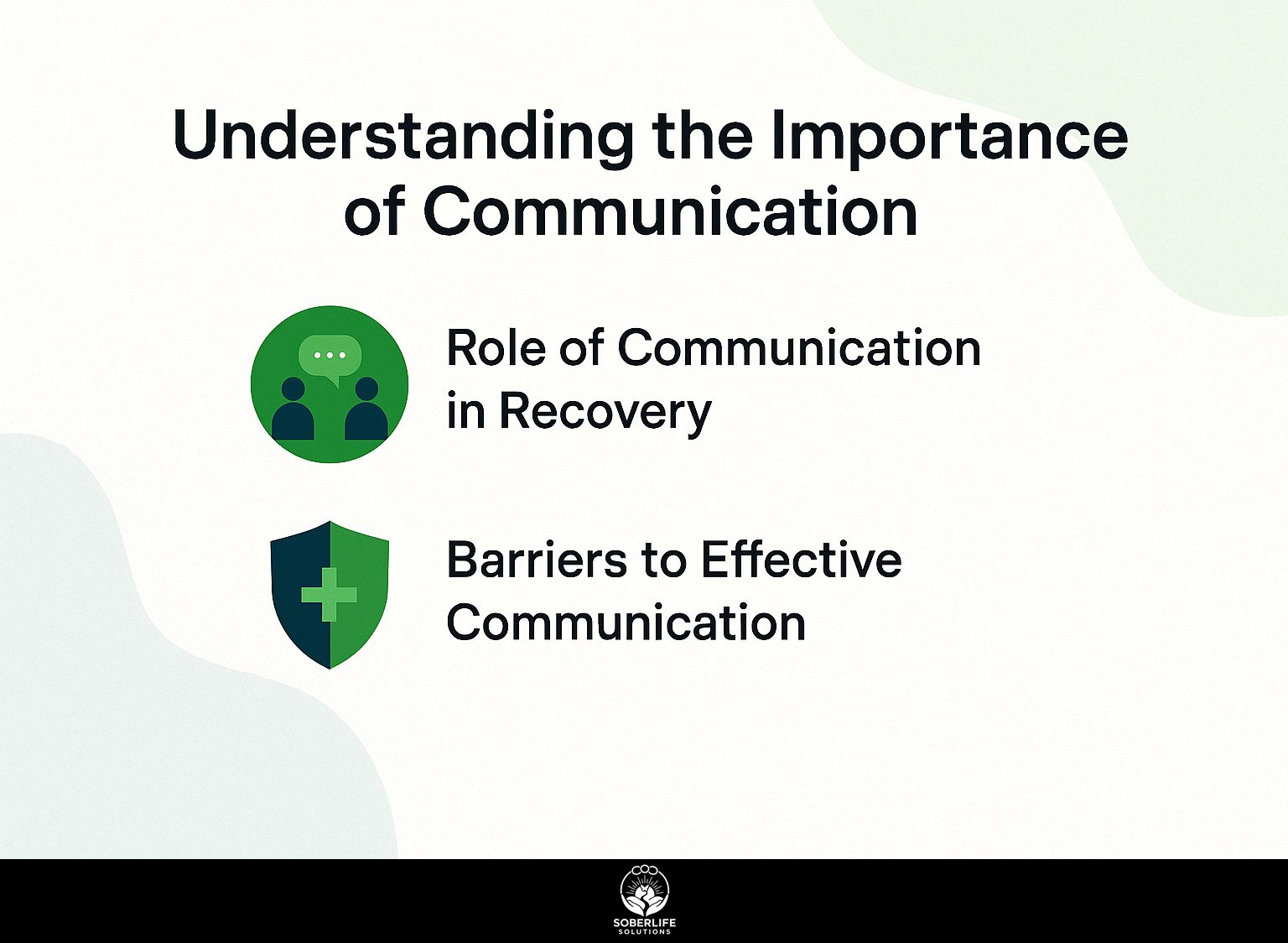
Clear communication is essential for recovery, helping with emotional development and mental health stability. This approach aligns with the principles outlined in fostering life skills in addiction recovery which emphasize planning and development to support long-term growth.
Role of Communication in Recovery
Talking helps people connect, and research shows that those who often discuss their emotions recover 40% better.
Participating in support groups exemplifies the power of shared experience. For instance, a member named Sarah shared how discussing her struggles with addiction in a weekly support circle helped her feel less isolated.
Similarly, Tom emphasized that hearing others’ recovery stories provided him with hope and practical coping strategies.
Tools like online forums and community apps, such as Meetup or GroupMe, improve this conversation, letting people connect with others who have similar problems.
Creating this supportive network can greatly improve emotional strength and encourage better ways to handle stress. This notion is supported by ResearchGate’s study on the associations between provider communication and personal recovery outcomes, highlighting the importance of shared experiences in enhancing emotional recovery.
Barriers to Effective Communication
Problems like negative emotions, shame, and lack of trust can greatly harm communication during recovery. This is a common challenge identified by research published on ScienceDirect, which explores both barriers and enablers of addiction recovery.
To address these barriers, consider implementing specific strategies.
- Establish healthy boundaries by openly discussing triggers and respecting personal space. This creates a safe dialogue, and employing these strategies can be especially impactful when setting boundaries in recovery.
- Participate in activities that build trust, such as sharing personal stories in small, encouraging groups to create empathy and awareness. Regular check-ins can help maintain open communication.
- For example, using journaling as a tool, individuals can express feelings privately before sharing them with others.
These practical steps can greatly improve openness and trust in recovery environments.
Identifying Your Feelings
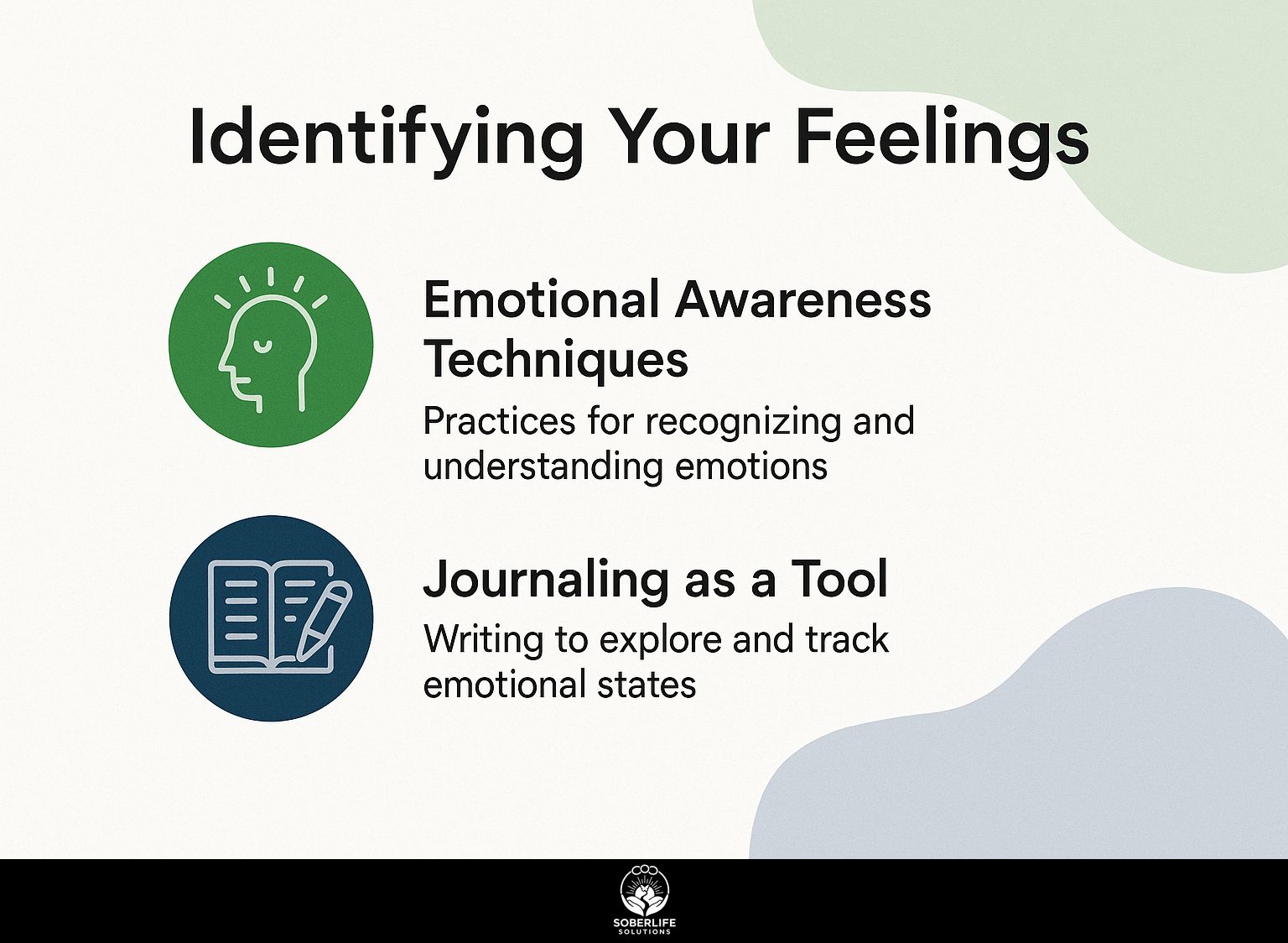
Recognizing and naming your emotions is important for finding ways to manage and support emotional recovery. Related insight: Emotional Health: Coping Mechanisms for Addiction Recovery offers valuable strategies that can aid in understanding and processing these emotions effectively.
Emotional Awareness Techniques
Practices like mindfulness meditation and reflective journaling can improve emotional awareness and help you understand your feelings better.
To develop emotional awareness, consider implementing the following techniques:
- Practice mindfulness meditation for 10 minutes daily, which research shows can significantly reduce stress and improve emotional regulation. According to the UCLA Health, meditation is a simple yet effective way to enhance your emotional well-being.
- Spend at least 15 minutes each evening writing about your day’s emotions in a journal to better understand them.
- Use emotion identification apps, like Moodnotes, to help you notice and name your feelings correctly.
- Participate in physical activities like yoga or tai chi, which have been linked to better emotional balance over time.
Commit to these practices for a month to gauge their effectiveness in enhancing your emotional awareness.
Journaling as a Tool
Journaling can be a powerful tool in recovery, with studies indicating that individuals who journal regularly report a 30% reduction in stress levels.
To start journaling effectively, consider these steps:
- Start with daily questions about your feelings, like “What caused my anxiety today?” or “What am I thankful for?”
- Include coping methods by writing about past difficulties and how you got through them.
- For instance, you might use questions like “Describe a time I felt strong” or “List five ways I handled difficulties.”
- Regularly setting aside 10-15 minutes each day can create meaningful reflection and aid in emotional processing.
Choosing the Right Medium
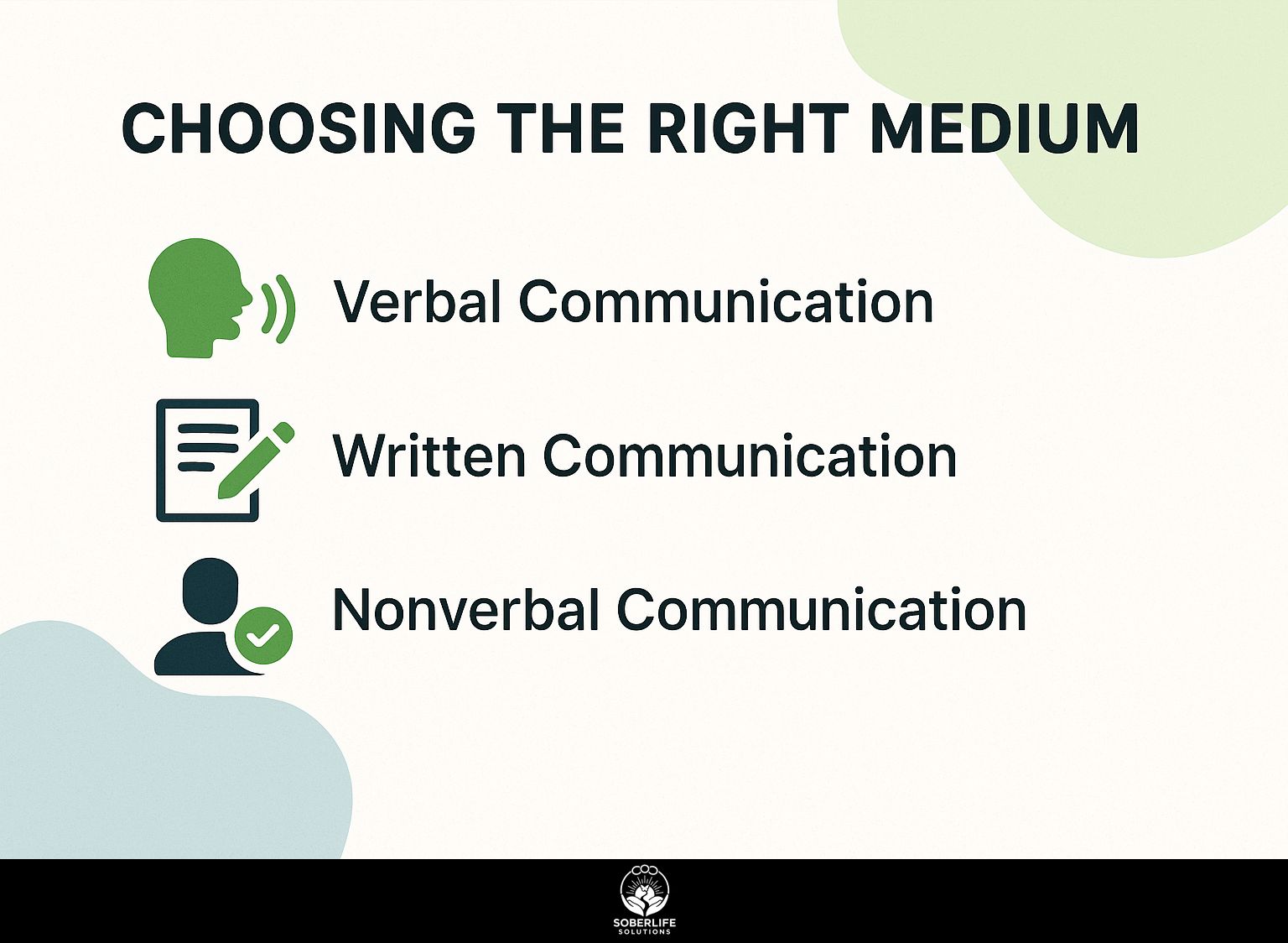
Picking the right way to communicate can greatly affect how clearly and effectively you express feelings during recovery. Worth exploring: How to Access Online Counseling? A Practical Guide, which provides insights into enhancing communication skills in a digital age.
Verbal Communication
Talking allows for quick feedback, which can improve clarity and connection during recovery discussions.
To maintain respectful and clear conversation, use techniques like active listening and asking open-ended questions.
For instance, instead of asking, “Did you have a good day?” try, “What was the highlight of your day?” This invites the person to share more deeply.
Avoid common pitfalls like interrupting or using judgmental language. Phrases such as “I understand how you feel” can create rapport, while distracted body language can convey disinterest.
Working on these skills can greatly improve how you talk to others.
Written Communication
Written communication, such as letters or emails, allows for thoughtful expression of feelings and can mitigate the anxiety of live conversations.
- To improve your writing, try using a few effective methods. Start by drafting your thoughts freely, then take a break before revising-this can create emotional distance and improve focus on clarity.
- Use templates to structure your letters; for example, begin with an opening statement, followed by personal reflection, and conclude with a call to action or a positive note.
- Get feedback from trusted friends to make your message better, ensuring it clearly and politely reflects your feelings.
Nonverbal Communication
Nonverbal communication is important for showing feelings and creating trust during recovery conversations.
Key elements of nonverbal communication include body language, eye contact, and tone of voice.
For instance, open body language-like uncrossed arms and leaning slightly forward-signals receptiveness and support. Looking someone in the eye shows you are paying attention and helps create a bond.
A warm, calm tone can reassure the speaker, enhancing their comfort level. Using these signals shows awareness and creates a welcoming environment, letting people share their feelings more openly during recovery.
Remember, consistency in these nonverbal signals reinforces your supportive intentions.
Practicing Active Listening
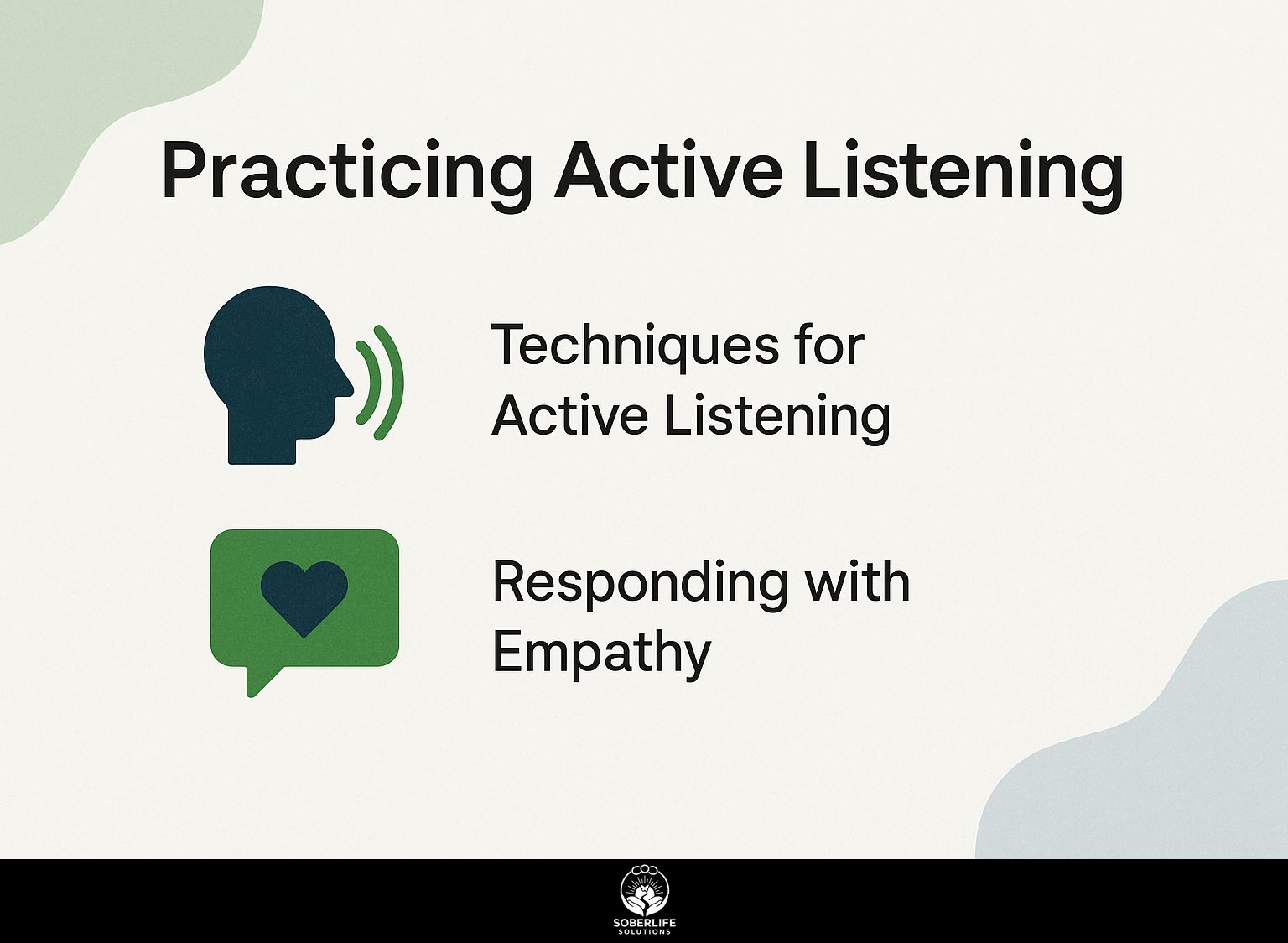
Active listening is a skill that improves emotional support and helps build stronger connections during recovery conversations.
Techniques for Active Listening
Techniques like paraphrasing, nodding, and asking open-ended questions can significantly improve the effectiveness of active listening.
Here are four more active listening techniques that can improve recovery conversations:
-
Reflective listening, where the listener repeats what the speaker has said, helps people feel connected and understood. For example, if someone shares sadness, you might respond, “It sounds like you’re feeling overwhelmed by this situation.”
-
Summarizing main points helps make things clear and shows the speaker you appreciate their message.
-
Using minimal encouragers, such as “I see” or “Go on,” encourages the speaker to continue without interruption.
-
Not judging others creates a safe place where people feel comfortable to speak honestly.
Responding with Empathy
Recognizing feelings can validate emotions and strengthen trust, which matters in healing relationships.
Showing empathy helps clients feel heard and can greatly improve the connection in therapy.
For instance, using phrases like “I can see how that must feel overwhelming for you” or “Your feelings are completely valid” demonstrates recognition of their emotions. During recovery from trauma, acknowledging feelings like anger or sadness with statements such as, “It’s okay to feel this way; many people do” can provide comfort.
Using active listening methods, like summarizing what someone has said or asking questions to clear up confusion, shows you truly care and encourages open conversation.
Expressing Feelings Constructively
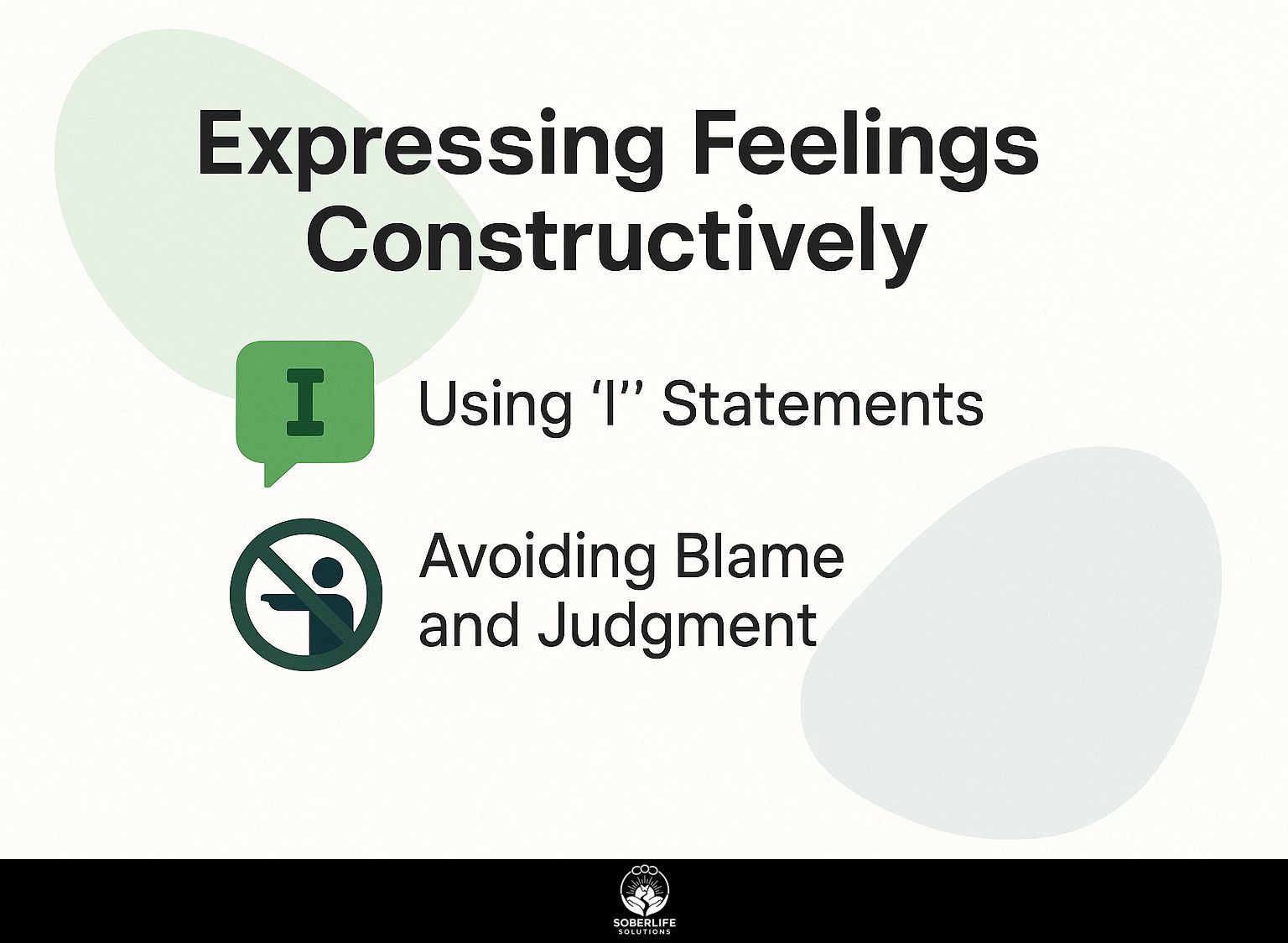
Sharing feelings in a helpful way is important for emotional recovery and forming connections during recovery processes.
Using ‘I’ Statements
‘I’ statements help express feelings without placing blame, promoting healthier conversations in recovery settings.
For example, instead of saying, “You never listen to me,” you might say, “I feel ignored when I talk about my ideas.” This change helps encourage discussion rather than making someone defensive.
‘I’ statements can be useful when talking about personal issues in a group setting or clearing up confusion with a sponsor. When people think about their own emotions and needs, they can grow empathy and care, creating a more supportive setting that helps with recovery.
Avoiding Blame and Judgment
Not blaming or judging in discussions helps create a trusting and open atmosphere, which is important for healing.
To maintain a non-judgmental tone, practice active listening and reflect on the speaker’s emotions without imposing your views. For example, instead of saying, ‘You shouldn’t feel that way,’ show empathy with phrases like, ‘It seems you’re feeling overwhelmed.’
Using tools such as ‘I feel’ statements can also help in grounding conversations. Creating a safe space involves acknowledging feelings before providing feedback. Regularly check in with individuals on how they perceive interactions, as this openness can help dismantle perceptions of judgment and promote healing.
Seeking Support
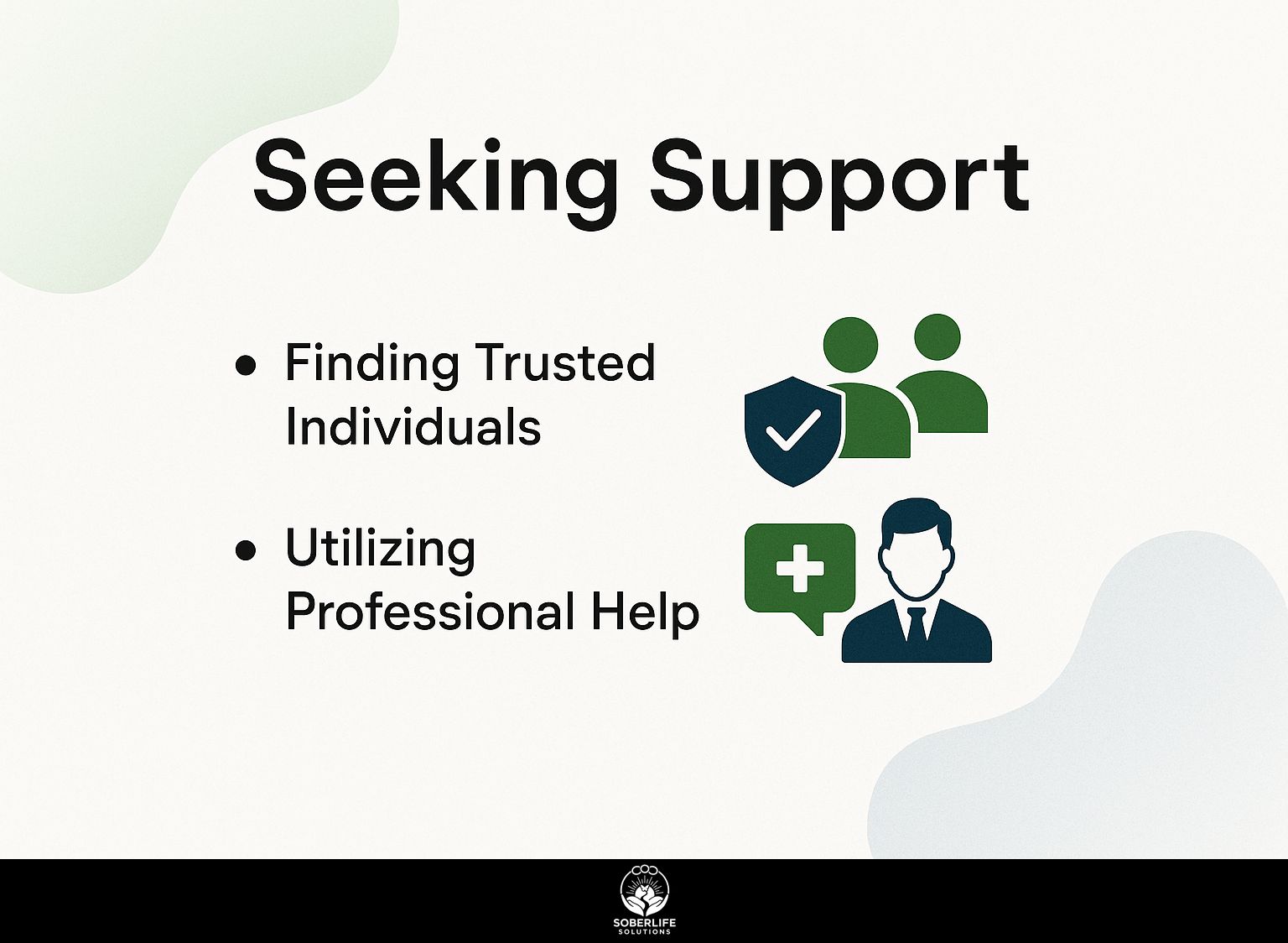
Getting help is important for dealing with the difficult feelings that come with recovery, offering responsibility and advice. For an extensive analysis of this trend, our comprehensive study of peer support in detox centers examines how these services impact recovery outcomes.
Finding Trusted Individuals
Finding and building relationships with reliable people can improve emotional support and responsibility during the recovery process.
- Start by engaging in local support groups or therapy sessions, where you can meet others facing similar challenges. Online platforms like Meetup or Facebook Groups can also connect you with supportive communities.
- Look for individuals who share your values and are open about their experiences. Warning signs of untrustworthiness may include excessive criticism, lack of empathy, or inconsistency in their engagements.
- Focus on building relationships that promote positivity and comprehension to create a strong support system during your recovery.
Utilizing Professional Help
Services like therapy or healing programs offer organized support that fits each person’s specific requirements.
You can find different kinds of professional help.
Therapy provides a private place to talk about feelings, while counseling usually deals with particular issues such as grief or relationship troubles. Recovery programs, such as Alcoholics Anonymous, provide community support for those facing addiction.
To find these resources, consider using platforms like Psychology Today to locate licensed therapists, or search local community centers that may host support groups. Online directories can also connect you with helplines and peer support networks suited to your requirements.
Maintaining Open Communication
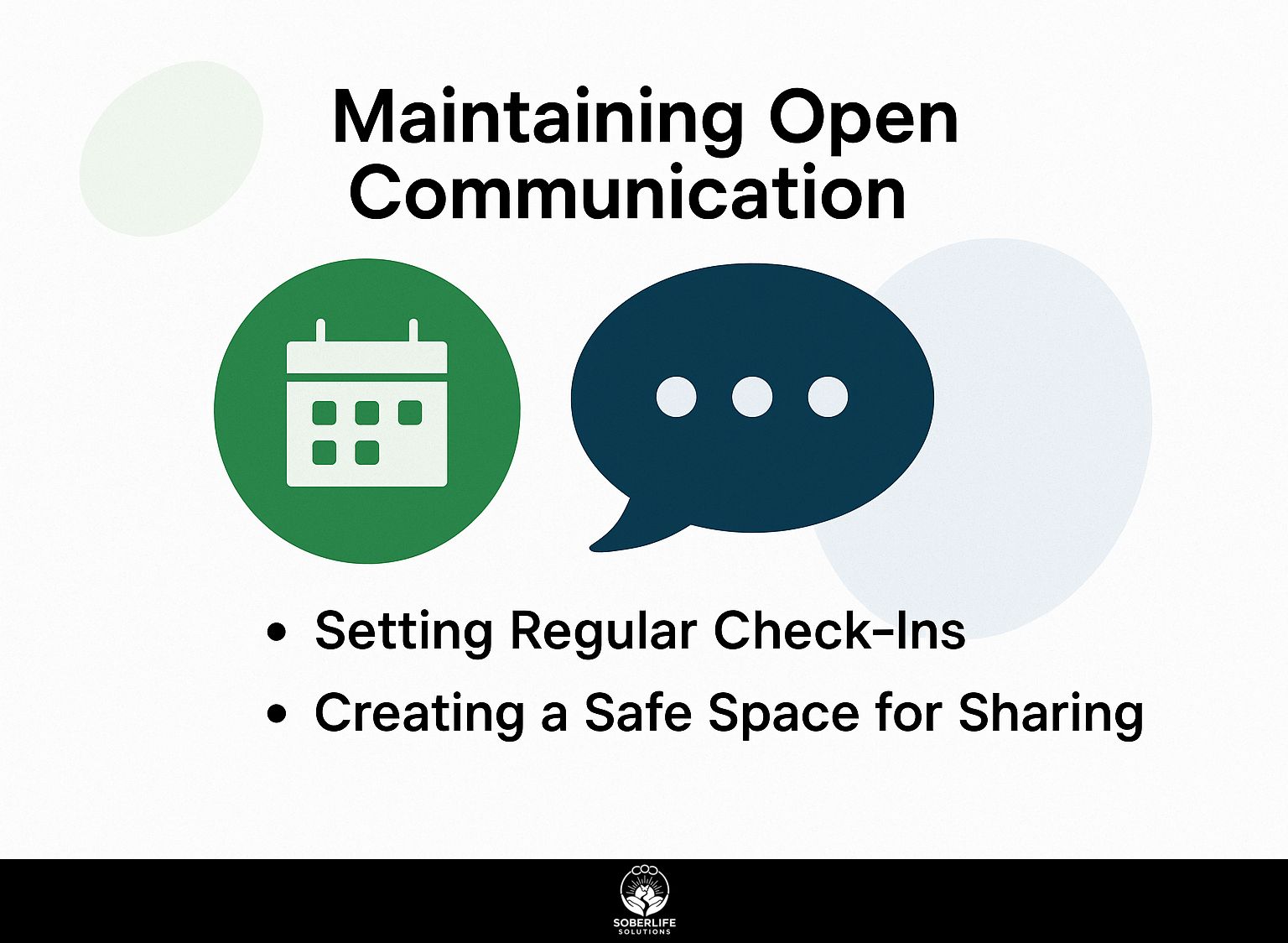
Keeping open communication is important for building relationships and helping emotional development during recovery.
Setting Regular Check-Ins
Having regular meetings can improve responsibility and provide continuous help during recovery.
To establish an effective schedule, aim for weekly or bi-weekly check-ins. Use apps like Google Calendar or Todoist to set alarms.
Each session should include discussing progress, identifying challenges, and setting goals for the next period. For more structured meetings, consider a format where you allocate time for each participant to share their updates followed by open discussions. This structure helps maintain focus and encourages participation.
Use video call tools like Zoom for online meetings so everyone can easily keep in contact.
Creating a Safe Space for Sharing
Creating a safe space for sharing experiences promotes emotional healing and encourages honest communication.
To establish this environment, consider both physical and emotional aspects.
Physically, set up chairs in a circle to encourage equality and openness. Emotionally, establish basic rules such as keeping things private and being respectful. Let everyone know you value their contributions.
A successful example is support groups that emphasize active listening and empathy, where participants recount personal stories without judgment.
Using tools like a ‘talking stick’ can help manage conversations, ensuring that each voice is heard while maintaining order and respect.
Frequently Asked Questions
Can communication of feelings aid in recovery?
Yes, it can be extremely beneficial to communicate your feelings during recovery. By expressing your emotions, you can release pent-up thoughts and emotions, allowing for a more positive outlook and improved mental health.
What is the best way to communicate feelings for recovery?
The best way to communicate your feelings for recovery is by being open and honest. Share your emotions with a trusted friend or therapist, and try to be as specific and clear as possible. This will help you understand and provide better support.
How can I overcome the fear of expressing my feelings during recovery?
It is natural to feel anxious or scared about expressing your feelings, especially during a vulnerable time like recovery. However, keep in mind that by expressing your feelings, you can receive support and empathy. Start small and confide in a trusted individual to build up your confidence.
Why is it important to communicate feelings in a recovery setting?
In a recovery situation, sharing your emotions helps others to know and support you better. By talking about your feelings, you can get helpful advice from people who have faced similar situations.
How can communication of feelings help with healing and growth in recovery?
By talking about your feelings, you can better understand your emotions and address any hidden problems. This can lead to healing and personal growth, allowing for a more positive and successful recovery process.
What should I do if I feel like I am not being heard when expressing my feelings for recovery?
If you feel like your feelings are not being heard or understood, it may be helpful to try a different approach. Think about keeping a journal of your feelings, or talk to someone else for support. It is important to find someone who will listen and provide support during this vulnerable time.

